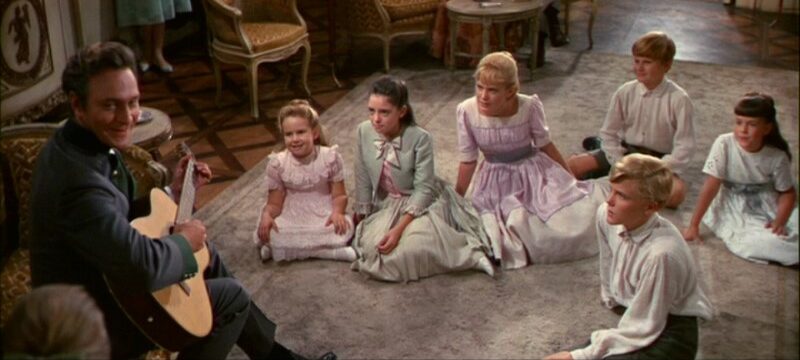***/**** Image A- Sound A- Extras B-
starring Norma Shearer, Joan Crawford, Rosalind Russell, Mary Boland
screenplay by Anita Loos and Jane Murfin, based on the play by Clare Boothe
directed by George Cukor
by Travis Mackenzie Hoover Few films fall on their swords so cheerfully and brilliantly as The Women. It's a masterpiece of rationalization that details the injustices men inflict on women until it suddenly shifts gears to explain why it's a woman's fault for giving up–an astounding about-face considering that it was written by women (Anita Loos and Jane Murfin, from Clare Boothe's play) and aims to completely banish men from the frame. But what sounds like a chance for actresses to shine turns into a world-famous bitch-a-thon in which men are a menacing, structuring absence rather than a lion tamed and women can be trusted to tear each other apart before doing any real damage to their master-tormentors. The film is compulsively watchable even as it does terrible things and holds its head high whilst simultaneously cutting it off.
Women's cinema profs in search of a subject for debate should look no further: this is a movie whose credits identify its heroines first as animals, then under their husbands' names, and finally, in parentheses, by their own names. The camera cranes across a gaggle of society women as their dogs attack each other (metaphor!) and then through a spa as they dish dirt and make acid remarks–distanciation is such a cruel mistress. Finally, Mary Haines (Norma Shearer) is the centre of attention in a world of female sharks (chief amongst them ostensible friend Sylvia (Rosalind Russell)), compared to whom her unseen philandering husband seems like a saint. And the only 100% trustworthy woman (mother, of course) is the one who suggests Mary try to "make it work" in any way possible.
This wouldn't be terribly remarkable were it not for the real and cutting insights The Women manages to squeeze into its frame. One scene has one domestic relating to another the bedroom confrontation between Mary and her husband, dissecting it in ways that leave no doubt as to which was the wronged party; you catch your breath with both the analysis of the subject and the profoundly witty manner in which it's carried off. The first half of the movie (besides the opener), actually, is full of like moments, where Mary is pitted against shopgirl/rival Crystal (Joan Crawford) or shown with a beatific daughter who, it is intimated, should not be subjected to this. (Shearer's explanation of the concept of divorce hasn't been topped in 67 years.)
For a while, you wonder if they're not going to wimp out and give us the triumphant female celebration we all richly deserve. But, of course, it's not to be: once Mary's divorce is finalized, guilt sets in as quickly as the pathetic harpies surrounding her in Reno, and fingers illogically point to Mary as the cause. But the illogic is so brilliant and so twisted that you watch in jaw-dropped admiration. The rationale borders on the surreal as her husband is rehabilitated and all women without men are shown to be harpies. And as the unseen masculine presence oppressively permeates the production, you've got to hand it to the filmmakers: it takes the infernal genius of a few ace writers (and women's-picture god George Cukor) to ensure that you won't throw things at the screen. Sometimes you have to admire something without admiring it–and The Women is one of those times.
Warner's DVD release of The Women acquits itself creditably if not with the unbridled success of its mastering subject. The full-frame b&w image is reasonably crisp, though there's brief flickering in the darkness of the opening credits. Otherwise, definition is good, fine detail is excellent, and the saturation is unimpeachable in the celebrated all-colour fashion show sequence. The Dolby 1.0 mono sound is perhaps a little faint and a little soft for its own good, but it's a small distinction that won't put a dent in your appreciation of all that great vicious dialogue.
Extras begin with two vintage featurettes. "Hollywood: Style Center of the World" (11 mins.) kicks off with an awkward bit that finds a small-town girl buying a dress based on Joan Crawford's in Susan and God, then segues into an ode to Hollywood's (actually MGM's reigning stylist Adrian) prowess in defining la mode. Really, it's just an excuse to push MGM product–and even more transparent in this regard is "From the Ends of the Earth" (10 mins.): Ostensibly a paean to the shipping industry, the short is in fact more MGM propaganda, with various imported items shown in use on various excerpted films. Also included is a b&w version of the fashion show sequence (6 mins.), which doesn't do much beyond getting you to give it up for Technicolor, as well as a cast and crew list, several pages of not-terribly-in-depth behind-the-scenes text, 16 cues of the film's music, and trailers for both the film and its musical remake, The Opposite Sex.
133 minutes; NR; 1.33:1; English DD 1.0; CC; English, French, Spanish subtitles; DVD-9; Region One; Warner




